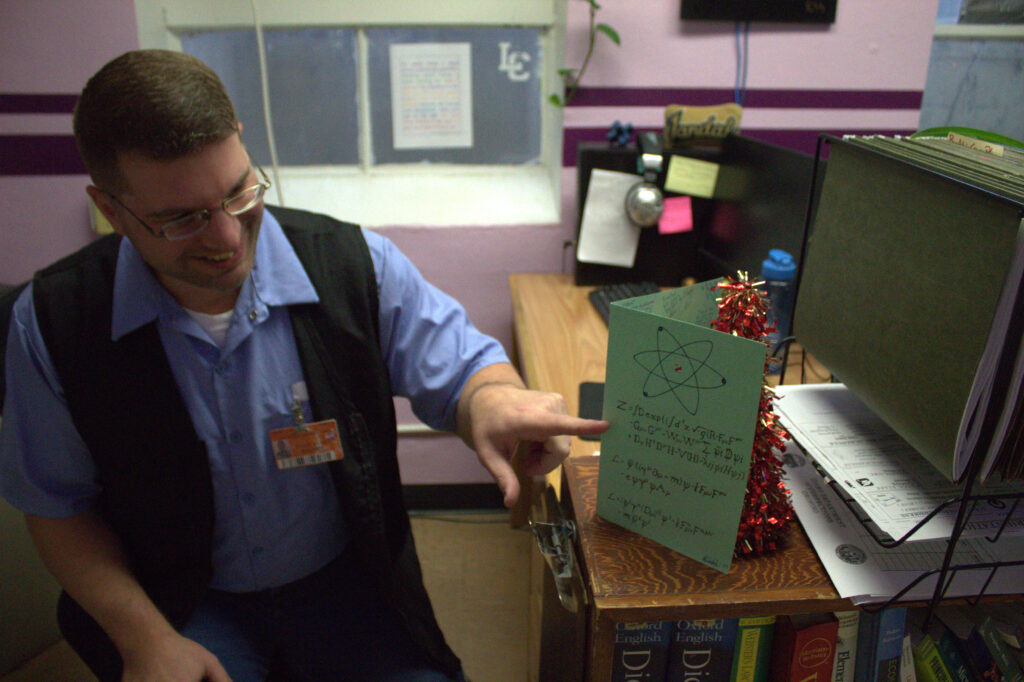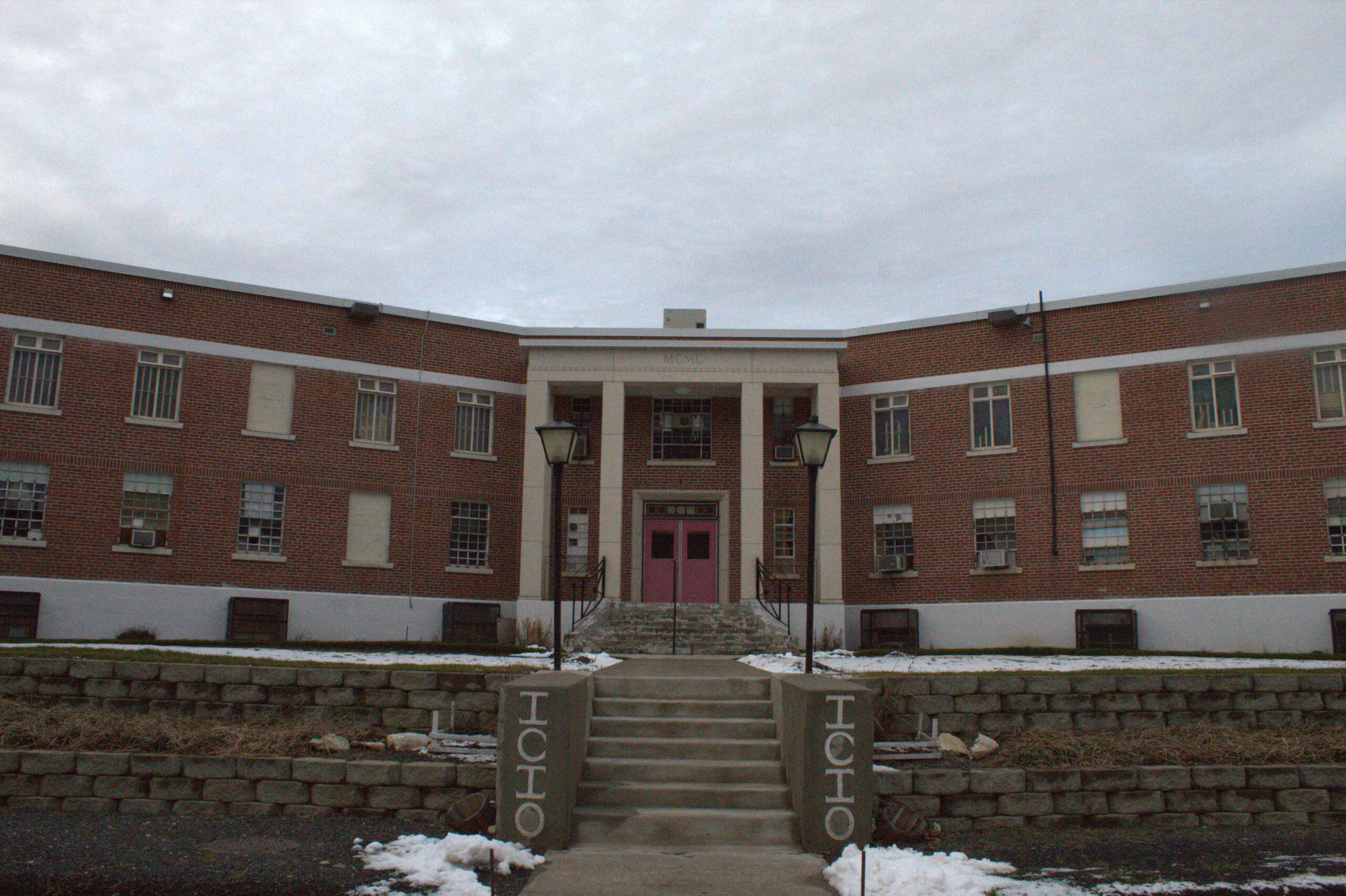During this summer, a team of students from MIT embarked on a journey to the sou …
Federal Grants Provide Opportunity for Idaho Prisoners to Pursue College Education
Jennifer Livingstone

Sean Carnell, a Boise native, never envisioned himself pursuing higher education and was formerly incarcerated for battery and robbery in 2013, where he obtained his GED. Currently, he is awaiting parole for another four years.
Despite his turbulent past, Carnell has earned a spot on the dean’s list at the University of Idaho for the past two consecutive semesters.
Carnell, a resident at the Idaho Correctional Institution in Orofino, is enrolled in college through the Second Chance Pell Experiment, a program initiated by the U.S. Department of Education. This program offers need-based Pell Grants to individuals in state and federal prisons.
“I never imagined achieving straight A’s or being a college student,” expressed Carnell to the Idaho Capital Sun. “Having the hope of accomplishing something, of being able to leave and say I made use of my time to improve myself, is monumental.”
Similar to Carnell, over 90 residents at the Orofino prison have enlisted for the spring semester under the Second Chance Pell program, keeping themselves occupied within the prison walls while preparing to bolster their credentials for future release.
“This program has given me hope and made me feel valued as a person in corrections,” shared Carnell. “Usually, we are defined by our shortcomings. This opportunity allows us to strive for success levels we thought were unattainable.”
Accessible College Education for Idaho Inmates after Thirty Years
Three decades ago, incarcerated individuals were stripped of Pell Grant eligibility through the Federal Crime Bill of 1994, initiated amid the era of tough-on-crime policies in the 1990s.
However, in 2015, the Obama administration restored Pell Grant access for incarcerated individuals as studies illustrated the role of prison education in reducing crime rates.
As per the Vera Institute of Justice, those incarcerated who engage in postsecondary education have a 48% lower recidivism rate. Additionally, every dollar invested in prison education results in savings of four to five taxpayer dollars in reduced incarceration costs.
Between 2016 and 2020, during the initial four years of restored Pell Grant access, over 7,000 incarcerated students earned associate or bachelor’s degrees, certificates, or diplomas, according to the Vera Institute.
In the fall of 2022, the University of Idaho and Lewis-Clark State College became the inaugural schools in Idaho to partake in the program, increasing the total participating colleges to 200.
Most courses are asynchronous and conducted virtually within the prison’s educational area using assigned laptops. However, some professors visit the facility in person, accompanied by non-incarcerated students.
While the program necessitates substantial partnership and cooperation between schools and correctional staff, Sean Quinlan, the dean of the University of Idaho’s College of Letters, Arts and Social Sciences, affirmed its significance.
“Access to higher education and achieving a college degree while incarcerated is a strong indicator of reducing future criminality,” stated Quinlan. “This serves as a vital way to serve our state – assisting individuals in bettering their lives and creating safer communities.”
‘Much-Awaited Opportunity’: IDOC Education Director
Ted Oparnico, the education director at the Idaho Department of Correction, expressed significant interest among correctional residents in participating in the Second Chance Pell program.
In Idaho, incarcerated individuals typically earn between 10 to 30 cents hourly, making this program vital in funding education beyond a GED or certificate.

“I believe they have been eagerly anticipating the arrival of a program like this for a long time,” Oparnico remarked. “Typically, we only provide GEDs as our secondary certification. Once that’s completed, the question arises – what’s next? Having a Pell program opens doors for continued education.”
Currently, students in Idaho prisons are in their initial semesters of benefiting from the Pell Grants, and thus, no graduates have emerged as of yet, noted Oparnico.
Silas Parks, incarcerated in 2010 for manslaughter following his wife’s death, expressed his excitement over the program’s introduction in Idaho.
“For over a decade in prison, I have dreamt of leaving and returning to college,” Parks divulged. “I may still be here, but I can pursue college education, which is an exhilarating prospect.”
Parks attended the University of Idaho before his incarceration but did not finish his bachelor’s degree. With the support of the Second Chance Pell Grant, he nears the completion of his degree. Upon release, his goal is to pursue a graduate degree.
“I entered prison at 23 and was far from mature,” reflected Parks. “Now, I understand what I desire. Loss teaches you your true desires more than anything.”
To enroll in the program, residents must possess a GED or high school diploma, maintain six months without disciplinary issues, complete a 20-hour college preparatory course, and commit to at least one semester of classes or reimburse the funds if they opt to discontinue.
“It’s beneficial for the community,” stated Oparnico, emphasizing that 90% of incarcerated individuals will be reintegrated into society following their time in Idaho’s correctional system. “Upon release, the public can trust that they will have a neighbor equipped with education since they chose to devote themselves to self-improvement, ready to contribute positively to society.”
‘Achievable for All’: IDOC Resident’s Perspective on College
Similar to Carnell’s unexpected college journey and Parks’ yearning for education post-release, Travas Bickhart relishes the personal growth that accompanying college studies in an Idaho prison.
Bickhart graduated high school with little effort by relying on others to complete his homework, despite facing challenges due to alcohol and drugs, yielding a modest GPA of around 2.8, as he disclosed to the Sun.
In 2018, Bickhart was incarcerated on rape charges, serving a sentence of up to 20 years, eligible for parole after a decade.
Despite being the inaugural family member facing a prison term, he also becomes the maiden college graduate in his lineage. Engaging in college courses has offered Bickhart profound self-discovery.
“Self-belief is key,” he remarked. “Regardless of the circumstances or past transgressions, everyone can achieve this. Although I have made mistakes, this is a source of pride for me.”


